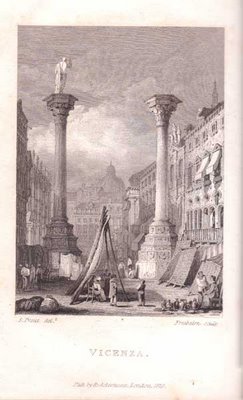Reason's Victory
 Rodney Stark, University Professor of the Social Sciences at Baylor University, has a new book, The Victory of Reason: How Christianity Led to Freedom, Capitalism, and Western Success. In it, Stark suggests that elements within Christianity actually gave rise not only to visions of reason and progress, but also to the evolution of capitalism.
Rodney Stark, University Professor of the Social Sciences at Baylor University, has a new book, The Victory of Reason: How Christianity Led to Freedom, Capitalism, and Western Success. In it, Stark suggests that elements within Christianity actually gave rise not only to visions of reason and progress, but also to the evolution of capitalism.In a review for the American Enterprise Institute Magazine, Kate Campaigne writes:
"Stark begins by providing the essentials of Christian thought and illustrating its differences from other religions. Thanks to its core tenet of freedom, ingenuity, innovation, and progress were encouraged. Thanks to its reliance on forward thinking, Christians were able to see a brighter future full of possibilities. And thanks to the Christian belief in a just God, mortals understood that their actions had consequences and would be judged. Thus, Christians have a reason to move forward: Having been given the freedom to choose their own paths, they are also given the responsibility to choose well."
Campaigne continues:
"Moreover, Stark explains how capitalism is compatible with Christian doctrine. Capitalism requires secure private property, free, uncoerced labor, and free markets. It also encourages an element of voluntary risk, and such risk is possible only with freedom. Human beings are given the opportunity to make choices, use their reason, and seek solutions. A human being can be a human being under the capitalist system. He can create relationships, test them, stop them when they do not work, generate growth when they do, and receive something from his investment of time and work. A person has intellectual capital to invest and the possibility of return and growth. In contrast, socialism offers no opportunity to give (no one owns anything substantive), receive, or produce. Socialism causes people to hoard goods rather than use them."
For scholars who are familiar with this line of thought, they will also be interested in stark's defense of the "dark" ages as not so dreary and unenlightened after all.
He recently touched on this aspect of the book in an interview from World Magazine:
WORLD: But a lot of us learned that Europe fell into the "Dark Ages." How did that historical understanding originate, and what's wrong with it?
STARK: The Dark Ages have finally been recognized as a hoax perpetrated by anti-religious and bitterly anti-Catholic, 18th-century intellectuals who were determined to assert their cultural superiority and who boosted their claim by denigrating the Christian past—as Gibbon put it in The Decline and Fall of the Roman Empire, after Rome came the "triumph of barbarism and religion." In the past few years even encyclopedias and dictionaries have begun to acknowledge that it was all a lie, that the Dark Ages never were. This always should have been obvious since by the end of the so-called Dark Ages, European science and technology had far exceeded that of Rome and Greece, and all the rest of the world, for that matter.
WORLD: Could you be specific? What were some of the "Dark Ages" innovations that show the folly of considering Greek and Roman culture the apex of civilization until recent times?
STARK: How about the perfection and widespread use of waterwheels, windmills, and pumps, the invention of the compass, stirrups, the crossbow, canons, effective horse harnesses, eyeglasses, clocks, chimneys, violins, double-entry bookkeeping, and insurance? This list doesn't begin to do justice to this era that historians of science now refer to as an age of remarkable innovation and discovery.
Perhaps the most revealing instance involves the "story" that in order to gain backing for his great voyage west, Columbus had to struggle against ignorant and superstitious churchmen who were certain that the earth was flat. Truth was that all educated Europeans, including bishops and cardinals, knew the earth was round...See also Thomas E. Woods Jr.'s How the Catholic Church Built Western Civilization (2005) and The Church and Market: A Catholic Defense of the Free Economy (2005).

<< Home